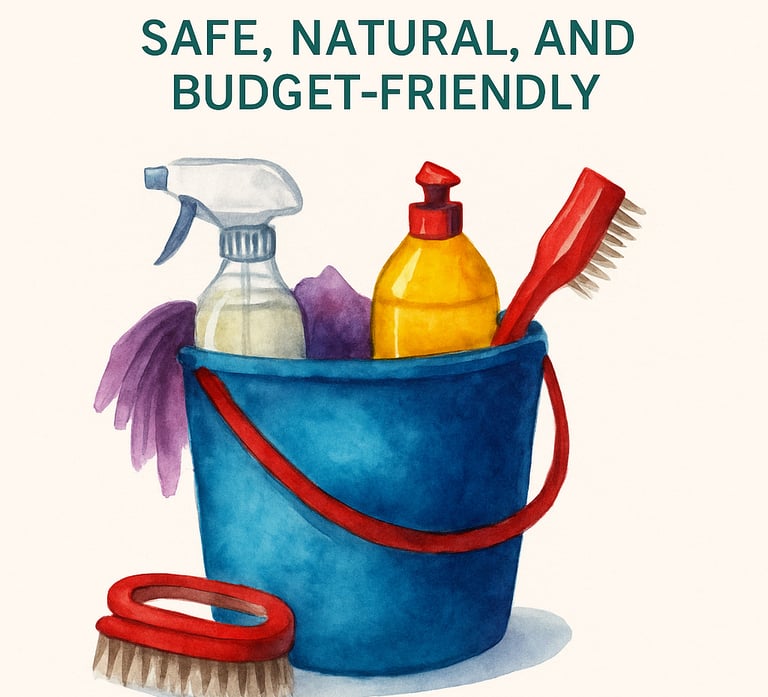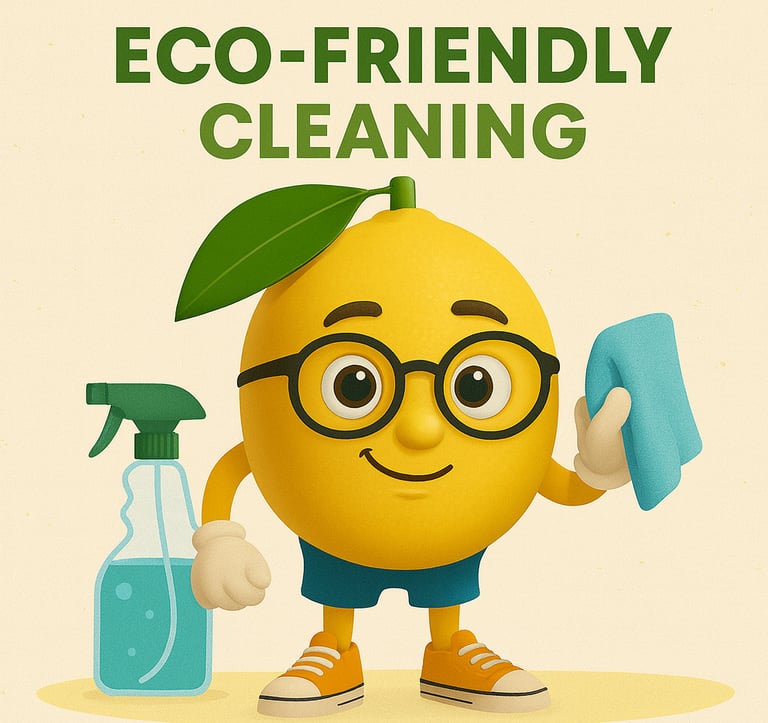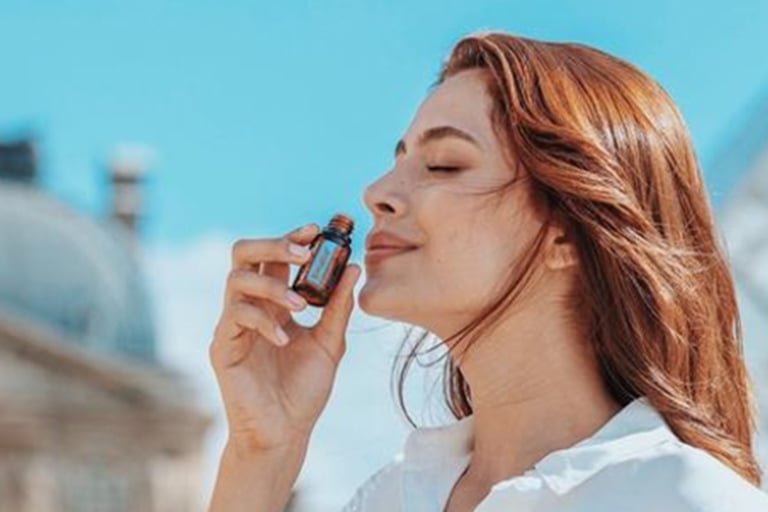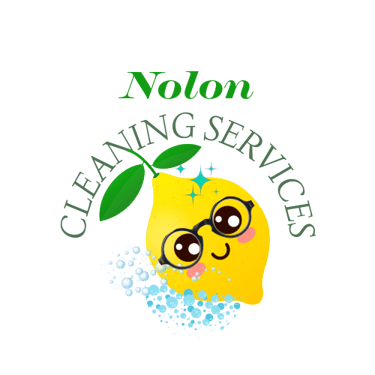Eco-Friendly Cleaning 101: Safe, Natural DIY Hacks to Detox Your Home Without Toxins
Explore natural DIY cleaning recipes using safe ingredients like baking soda, vinegar, castile soap, and essential oils. Detox your home and breathe easier with budget-friendly, eco-conscious solutions.
DIY CLEANING HACKS
Nolon Cleaning
11/21/20256 min read


My name is Nolon, and I’ve been cleaning my house with a few basic, natural ingredients for more than twenty-five years. I’ve learned a lot about what works and even more about what doesn’t work.
In Nolon Cleaning, I’ll explain why these cleaners work, and discuss why you shouldn’t use some DIY cleaning recipes you see online. Things like:
Why you shouldn’t mix vinegar and castile soap
Why you should use purified water instead of tap water
How to customize your cleaners with essential oils
You can read this blog straight through from beginning to end or use the table of contents to skip from one section to another as needed.
Happy cleaning!
🌎 Why Make the Switch to Natural Cleaning?
Switching to natural cleaning methods just makes sense. There are tons of benefits and no downsides!
Safety Is #1
Common household cleaners are not kid-friendly or pet-friendly. Store-bought cleaners like bleach, ammonia, drain cleaners, toilet cleaners, and more are the cause of thousands of household emergencies each year.
These are strong chemicals that can cause irritation, burns, and poisoning. Your home is simply safer without them.
Cleaner Air
The biggest thing I noticed when I made the switch to natural cleaning was improved air quality. The harsh cleaners with artificial fragrances irritated my airways and gave me headaches.
These symptoms cleared up the moment I switched to making my own cleaners. If you have asthma or allergies, natural cleaning is even more important.
Save Money
Nothing makes me happier than finding budget-friendly ways to stay healthy. Basic natural cleaning ingredients are easy to find, and the finished products are much cheaper than buying prepackaged products. Plus, if you run out of a cleaner you can make another batch without a trip to the store.
When you switch to DIY cleaning products, you’ll save money while making your home a safer place.
Fewer Products
Did you know that you don’t actually need a different cleaner for every surface in your house? Seriously! All those bottles of conventional cleaners equal wasted money and materials. All you really need are a few basic supplies and ingredients to clean every part of your home.


🧴 Basic Natural Cleaning Ingredients
Baking Soda
For scouring and deodorizing, you can’t beat baking soda. You can get a jumbo-sized box for just a few dollars.
Baking soda is alkaline, so it makes soap more effective. Baking soda + castile soap is the winning combo for scrubbing away dirt and grime.
White Vinegar
A gallon of white vinegar is inexpensive, will last for ages, and is useful in many areas of the home. It cuts through tough buildup from hard water and soap scum because it’s acidic.
If you don’t like the smell of vinegar, make infused vinegar with citrus peels.
To make infused vinegar, peel the rind (not the white pith) from your favorite citrus fruits. You can use a single type, or a combination. I like to use grapefruit vinegar in the bathroom, and lemon-orange vinegar in the kitchen.
Place the peels in a clean glass jar and pour white vinegar over the top to fill the jar. Put a lid on the jar and let it steep for about a week.
Strain off the peels and use them to freshen your garbage disposal. Then label the jar and use your citrus vinegar in any cleaning recipe that calls for white vinegar.
Note: Because vinegar is acidic, don’t use it on porous surfaces like granite, marble, or natural stone.
Castile Soap
Castile soap is highly effective for breaking down dirt, grime, and grease. It’s safe for kids and pets, too. It’s made from natural vegetable oils and lye (as opposed to other soaps traditionally made with animal fat, like tallow).
💧 Distilled or Purified Water
It’s important to use distilled water or water that’s been purified in a Berkey Filter for these recipes.
Tap water (and well water) contains microorganisms, bacteria, viruses, pharmaceuticals, lead, chemicals, and more. If you make the recipes in this book with tap water, you’re spraying these contaminants all over your home!
You can look up your water quality using the Environmental Working Group’s Tap Water Database (ewg.org/tapwater). Be warned, though—you might not like what you read.
Purified water is a step above filtered water. Filters remove most bacteria, lead, and chemicals. They also remove the chlorine that’s used to treat tap water, as well as any particulates that cause water to have taste or odor (eeeew).
Berkey water purifiers do all of these things plus remove at least 99.9999 percent of pathogenic bacteria and reduce viruses by 99.99 percent. Impressive, yes?
We use purified water from our Berkey Filter for drinking, cooking, and cleaning. You can absolutely taste the difference when your water is clean and pure, and I feel much better when my family’s water is completely and truly clean.
🌸 Essential Oils for Cleaning
Artificial fragrances are one of the main reasons I avoid store-bought cleaners. Instead, I use essential oils to add scents to my cleaning recipes.
Essential oils are extracted from plant parts (roots, stems, leaves, and flowers) and are carefully curated to preserve the potent properties of the oil. When you use essential oils for cleaning, you are relying on the natural chemical components found in the oil to provide cleansing and purifying power.
When used carefully, essential oils can be an important part of your natural cleaning routine. They are very concentrated, so you only need a few drops. When buying essential oils, look for quality brands that don’t include fillers or artificial ingredients.
Each essential oil recommended in this book has a unique set of chemical compounds that give the oil specific cleaning benefits. Citrus essential oils like lemon and orange help bust through grease, grime, and sticky messes. Tea tree, thyme, and rosemary purify while eliminating odors.
Essential oils also add aromatherapy benefits, which means you can reduce stress while you clean. (Who would have thought?)
🧽 Rubbing Alcohol
For glass, granite, and any other surface that needs to shine, you just need a little rubbing alcohol. Alcohol gives things that “squeaky clean” we all know and love without the toxic fumes of ammonia and other harsh cleaners. It’s also safe for porous surfaces like granite and marble.
🧰 Tools & Supplies You’ll Need
While the ingredients you use are important, so are proper cleaning tools. When you have the right supplies on hand, it makes cleaning easier and more effective.
Spray Bottles (16-Ounce or Larger)
I prefer glass spray bottles because glass is eco-friendly and easier to wash. However, if your kids help you clean (another advantage of using safe, natural cleaners!) then you might want to use plastic spray bottles.
Microfiber Cleaning Cloths
As you can tell from the name, microfiber cloths are made with tiny, tiny fibers. This means that they are very absorbent, durable, and attract more dirt than conventional cloths. They can be washed and reused for years, which makes them very inexpensive over time. To avoid cross-contamination, use different colors for different rooms.
Sturdy Scrub Brush
A wooden scrub brush with natural bristles is the most eco-friendly choice. Once it’s worn out, you can safely add it to your compost bin for complete recycling.
🧼 The Difference Between Soap and Detergent
How Soap Is Made
Soap is created by mixing fats and oils with an alkali or base. This method has been around for hundreds of years—remember the soft soap Ma used in the Little House books? It was created with ashes (that contain lye, a base) with animal fats.
Because soap is natural, it is biodegradable and less harmful to the environment than detergents. However, the minerals in water react with soap and can turn clothes gray and leave a film or residue. Detergent is a big improvement, as far as laundry is concerned!
How Detergent Is Made
Detergents are made by combining chemicals in a slurry mixer. The mixture heats up as a result of chemical reactions, and then it’s dried and powdered to form the final product.
If you’re using a liquid detergent, then it’s probably had water added to it after it was dried and powdered. Crazy, huh?
However: because detergents don’t react as much with the minerals in water, they’re the best choice for laundry.
❓ Frequently Asked Questions (FAQs)
Q: What’s the best natural cleaner for bathrooms?
A: A mix of baking soda and castile soap works great on tubs and tiles. Add vinegar separately to break down soap scum.
Q: Can essential oils disinfect surfaces?
A: Yes, oils like tea tree, thyme, and lemon have antimicrobial properties. Use proper dilution for effectiveness.
Q: What surfaces should I not use vinegar on?
A: Avoid granite, marble, or other porous stone — vinegar can etch and damage them.
Q: Can I use tap water in my DIY cleaners?
A: It’s better to use distilled or purified water to avoid introducing contaminants.
Q: What can I use instead of bleach?
A: White vinegar, hydrogen peroxide, and alcohol are safer, non-toxic alternatives.
Q: Is this method good for people with asthma or allergies?
A: Yes! Natural cleaners improve air quality and eliminate fragrance-related irritants.
Q: How do I start a green cleaning business using these tips?
A: Use your unique recipes, highlight “non-toxic” and “eco-friendly” on your site, and optimize for keywords like “green home cleaning services near me.”.


Connect
Get in touch for your cleaning needs today.
Support
Follow
206-737-3718
© 2025. All rights reserved.
